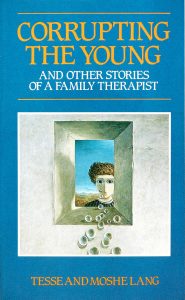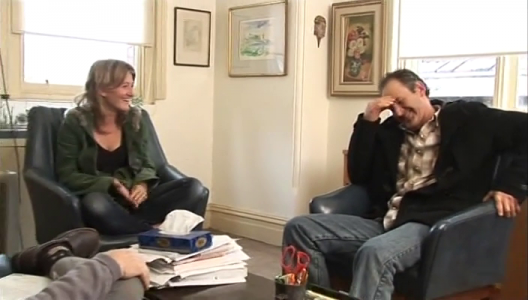The genogram is a practical and widely adopted tool for mapping families in therapy. Its use can be easily learnt and is recommended for beginners in family therapy. The genogram promotes thinking in system and transactional terms, and shifts emphasis away from individual problems to relational issues.
Even though the behaviour and problems of this family are unique, they highlight points, issues and characteristics that may be present in most families under stress.
Moshe Lang is a natural story-teller whose many years as a family therapist have provided the raw material for these delightful short stories. They cover marriage, parent/child relationships, and all the frustrations, wry pleasures and pressures of family life. Some are wise anecdotes that reflect universal truths, others show how family therapy works, sometimes despite the therapist.

We welcome the multi-level analysis of separation crises offered in the Quadrio and Levy article. We were pleased to note the recognition they have given to the importance of the Holocaust experience in their case study. […] Unfortunately, however, their recognition of the significance of the Holocaust has not been taken far enough.
We aimed to begin opening up in public what we had been sharing in private. The Holocaust is a central event of our century, an evil that continues to cast a shadow over our lives, and our work as therapists.
Moshe Lang, a leading family therapist in Australia and author of numerous books in the area of his professional expertise, has written the central article of this edition’s symposium. Detailing several case histories of Holocaust survivors and members of their families, it offers comment and reflection upon the long shadow cast by the trauma, as well as upon the resolutions he is often instrumental in affecting. Responses to his article by academics and mental health professionals from Australia and overseas comprise another section of the symposium, while two children of survivors also offer their thoughts and words in articles that add new chapters to a story many thought was already completed.
I asked Shirley to draw a picture, something I typically do with young clients, and she drew buildings and chimneys big, square, featureless buildings with lots of wide chimneys. She took special pains with the smoke issuing from the chimneys, furiously blackening in great, dark plumes.
Stories of family therapy with Holocaust Survivors and their families are presented. They came with symptoms or complaints that seemed unusual and at times bizarre. Although they had seen other members of the helping professions, the Holocaust had never been mentioned. Only when it was explored did their problems become comprehensible and meaningful, providing the context for alleviating or resolving their complaints.
Moshe Lang presents us with a book of nuance and flavour. Resilience is a collection of brief sketches and vignettes, each serving as a vehicle for pithy observations and cogent insights.

